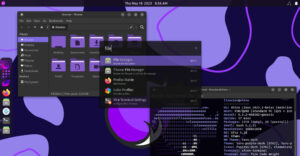
As Linux moves into mainstream corporate environments, Microsoft has acknowledged that open-source software is a growing threat. The software giant, however, stops short of calling Linux a serious competitor for the desktop.
Microsoft also has placed a section on its Web site titled “Get the Facts on Windows and Linux,” which includes case studies of companies that have switched back to Windows after trying Linux. The section also has analyst reports and test lab results.
In recent months, Microsoft also has highlighted its victories over Linux, such as its contract with the London borough of Newham. Other European municipalities and agencies have investigated or migrated to Linux.
The company is so strongly focused on spreading its opinions about Linux because it sees open source as a hazard to its health. “It’s taking business away from them,” Yankee Group analyst Laura DiDio told LinuxInsider. “That makes it a threat.”
Mixed Feelings
In 1999 Bill Gates noted that open source was a competitor only in the student and hobbyist market, not in the commercial market.
Since then the company has grown increasingly concerned about the impact of Linux on the market. In 2001, current CEO Steve Ballmer said that Linux “is a cancer that attaches itself in an intellectual property sense to everything it touches.” That same year, he told Microsoft employees that he felt Linux was the company’s biggest competitor.
In July of this year, Ballmer admitted that Linux is keeping the company “on our feet.”
DiDio noted that in the past few years Microsoft has been working on becoming a “kinder, gentler” company, which could benefit its anti-Linux efforts.
“They’re flexible and adaptive,” she said. “That gives them an advantage over companies like IBM and HP.”
Windows in the Office
In terms of desktop market share, Microsoft appears to have little reason for worry. The company now has software on approximately 95 percent of U.S. desktops.
But companies advocating the use of Linux are pushing to get open source into server rooms, and eventually onto desktops.
The assault is moving into full swing in both areas. In March HP and Novell announced that HP would begin shipping desktop PCs and notebooks with Novell’s SuSE Linux Professional 9.1 operating system.
Gartner analyst Michael Silver told LinuxInsider that he believes HP is trying to rush Linux into the mainstream. If the attempt sputters, he says, then Microsoft will be able to point to it as an indication that Linux is not ready.
Silver added that Microsoft is in a good position to combat Linux because of its strength in the office landscape.
“There are so many Microsoft applications being used at companies,” he said, “that it would take many businesses a long time to actually switch to Linux. Most aren’t willing to make that kind of effort.”
Hidden Costs of Linux
As Microsoft works to turn customer attention away from Linux, both Silver and DiDio note that there are many vulnerabilities that the company will be able to exploit.
Predominantly, there is the cost issue. Some companies have switched to Linux as a way to save money, and Microsoft is responding by lowering prices, as well as by calling attention to what it calls Linux’s “hidden costs.”
“Linux distributors can’t pay their electric bills with open source,” said DiDio. “They have to make their money somewhere.” They earn revenue by charging for services, and it is there that Microsoft is battling them on total cost of ownership.
As Linux becomes more commercialized, leading to distributor fees, Microsoft is expected to draw more attention to such comparisons.
“Say what you want about Microsoft and its high prices,” DiDio said. “They include a lot in what they sell.”
Other areas that may offer Microsoft avenues of attack include Linux patent issues, migration costs and business viability.
Silver noted that as the competition rages, companies might be caught in the middle. “Businesses are going to have to decide on which direction they’re going to go,” he said. “Microsoft will do what it can to drive companies away from Linux.”





















































